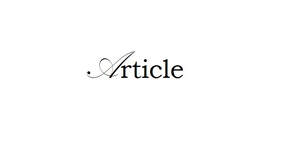
“There’s a new sucker born every day” pretty much sums up the entire process of an individual becoming a homebuyer. The buyer holds up a set of keys while saying cheese for the camera, while the photo captures a moment that will serve as credibility for the players involved in a game behind the sale itself. Before I get ahead of myself, there are a couple very common misconceptions about the idea of home buying that must be cleared up. The purpose of this series is to illuminate those of you to a deeper understanding of what it means to become a “homebuyer”. We will dive into the finer nuances that all the lenders, agents, and other players involved in a larger game that requires your participation - really don’t want you to know as a potential “homebuyer”.
1. If you take out a mortgage, then the only thing you’re “buying” is the bullshit –
You’re not a “homebuyer” and you’re not a “property owner” when there is a lien on the real estate (especially in excess of 80% LTV, but more on that later). When you become what the lenders and agents in the real estate industry (the market makers) call a “homebuyer”, what that actually means is that you are a willing carrier of debt. You become a participant of the real estate industry game. You will not own the property and you will have no control over the real estate, but rather the privilege to occupy the real estate (a piece of privately owned property that you happen to have rights to, that’s it).
2. Understand that “buying” a home is not the same as making an investment –
Individuals in the real estate market* (the industry game) are often sold the idea that their home will be an investment. Straight up and to the point, your home is not an investment. What you are doing when you buy a home is purchasing a personal responsibility, and if you are carrying a mortgage on that home - then you have also purchased a personal financial liability on top of that newfound personal responsibility. More details on this notion will be elaborated on in part two of this series, but understand that at best you are leasing private property that ultimately belongs to the state, but more often than not you are also renting the privilege to occupy a piece of property from a bank that owns the lien on the property itself. When you have assumed personal responsibility for maintaining a piece of real estate that means you have taken on the task of paying all ongoing expenses required for upkeep, but also in addition to all your personal costs of living that come along with being an “owner” of private property. In the long run, all so called home buyers lose money on their deal, because a home is not a business that generates revenue or an investment that pays you in the form of dividends. When it comes to maintaining a home on private property, cash only flows in one direction (out from your pockets). As soon as you assume responsibility over what is legally considered a piece of private property in the form of Real Estate, what you have done is taken on a liability in more ways than one. I repeat, “buying a home” is not an investment, and becoming a “homebuyer” does not make you an investor.
You’re not a “homebuyer” and you’re not a “property owner” when there is a lien on the real estate (especially in excess of 80% LTV, but more on that later). When you become what the lenders and agents in the real estate industry (the market makers) call a “homebuyer”, what that actually means is that you are a willing carrier of debt. You become a participant of the real estate industry game. You will not own the property and you will have no control over the real estate, but rather the privilege to occupy the real estate (a piece of privately owned property that you happen to have rights to, that’s it).
2. Understand that “buying” a home is not the same as making an investment –
Individuals in the real estate market* (the industry game) are often sold the idea that their home will be an investment. Straight up and to the point, your home is not an investment. What you are doing when you buy a home is purchasing a personal responsibility, and if you are carrying a mortgage on that home - then you have also purchased a personal financial liability on top of that newfound personal responsibility. More details on this notion will be elaborated on in part two of this series, but understand that at best you are leasing private property that ultimately belongs to the state, but more often than not you are also renting the privilege to occupy a piece of property from a bank that owns the lien on the property itself. When you have assumed personal responsibility for maintaining a piece of real estate that means you have taken on the task of paying all ongoing expenses required for upkeep, but also in addition to all your personal costs of living that come along with being an “owner” of private property. In the long run, all so called home buyers lose money on their deal, because a home is not a business that generates revenue or an investment that pays you in the form of dividends. When it comes to maintaining a home on private property, cash only flows in one direction (out from your pockets). As soon as you assume responsibility over what is legally considered a piece of private property in the form of Real Estate, what you have done is taken on a liability in more ways than one. I repeat, “buying a home” is not an investment, and becoming a “homebuyer” does not make you an investor.




